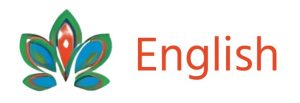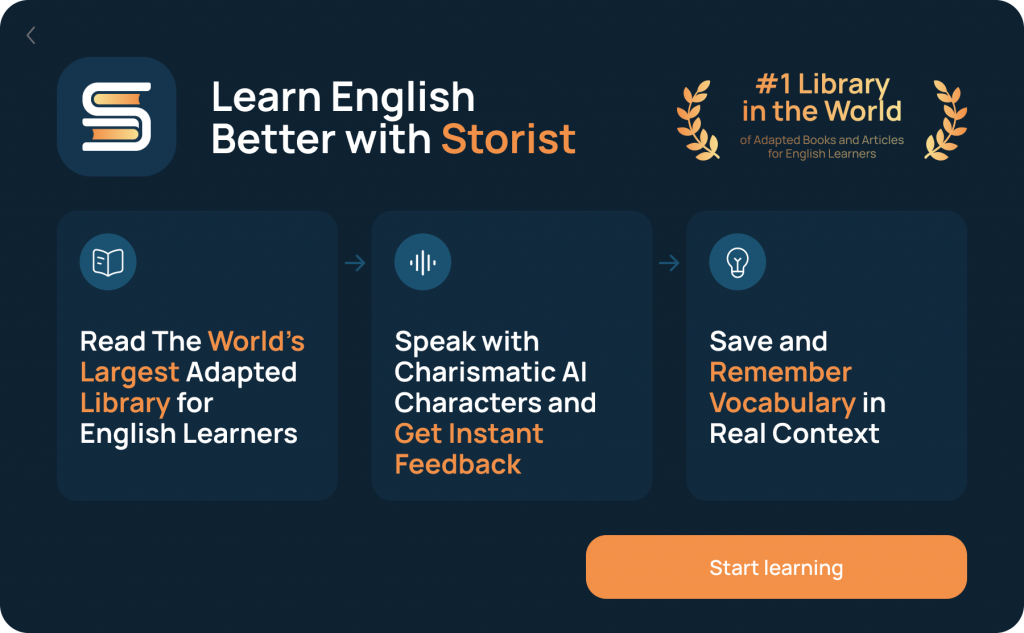Master English Vocabulary with Rosetta Stone in USA
Build strong English vocabulary skills through Rosetta Stone’s proven methods. Interactive lessons, speech recognition, and personalized learning paths in USA.
Building Strong English Vocabulary Foundations
Our platform transforms English vocabulary learning through structured, interactive methods designed for USA learners. Rosetta Stone combines visual learning, contextual understanding, and speech recognition technology to help students master essential English words. We focus on practical vocabulary that students use in daily conversations, professional settings, and academic environments.
The foundation of effective vocabulary learning starts with systematic word introduction. Our lessons present new words through images, audio pronunciation, and contextual sentences. Students learn words like “appointment,” “schedule,” and “deadline” within workplace scenarios. Each vocabulary unit contains 15-20 related terms that build upon previous knowledge.
We organize vocabulary into thematic categories: family relationships, food and dining, transportation, healthcare, and business communication. This approach helps students connect related words and understand usage patterns. Students practice with words such as “colleague,” “supervisor,” “meeting,” and “presentation” in professional contexts.
Essential vocabulary categories we cover include:
- Greetings and social interactions (hello, goodbye, please, thank you)
- Numbers, dates, and time expressions (appointment, schedule, deadline)
- Family and personal relationships (spouse, colleague, neighbor, friend)
- Food, dining, and cooking terms (ingredients, recipe, restaurant, menu)
- Transportation and travel vocabulary (flight, reservation, luggage, passport)
Our speech recognition system provides immediate feedback on pronunciation accuracy. Students record themselves saying new words and receive scores based on native speaker patterns. This technology helps learners perfect their accent and build confidence in spoken English vocabulary.
| Vocabulary Category | Examples | Focus Area |
|---|---|---|
| Social Interactions | Hello, please, thank you | Basic communication |
| Workplace Terms | Meeting, presentation, deadline | Professional settings |
| Travel | Flight, reservation, passport | Transportation scenarios |
| Food & Dining | Menu, recipe, restaurant | Everyday activities |
| Family & Relationships | Spouse, colleague, neighbor | Personal communication |
Interactive Learning Methods for Vocabulary Retention
Rosetta Stone employs multiple learning techniques to ensure long-term vocabulary retention. Our spaced repetition system reviews previously learned words at optimal intervals. Students encounter the same vocabulary in different contexts throughout their learning journey.
Visual association forms the core of our vocabulary instruction. Each new word appears alongside relevant images that illustrate meaning without translation. Students see pictures of “kitchen,” “bedroom,” and “bathroom” while hearing native pronunciation. This method creates stronger memory connections than traditional translation-based learning.
Contextual learning helps students understand how words function in real sentences. We present vocabulary through dialogues, stories, and practical scenarios. Students learn “reservation” through hotel booking conversations and “prescription” in medical appointment dialogues.
| Learning Method | Description | Practice Time |
|---|---|---|
| Visual Association | Images paired with vocabulary | 10-15 minutes |
| Speech Recognition | Pronunciation practice with feedback | 5-10 minutes |
| Contextual Scenarios | Real-life conversation practice | 15-20 minutes |
Our mobile app enables vocabulary practice during commutes, lunch breaks, and travel time. Students access flashcards, pronunciation exercises, and mini-lessons on smartphones and tablets. The app synchronizes progress across all devices for seamless learning continuity.
Structured Vocabulary Progression System
We design vocabulary progression to match natural language acquisition patterns. Beginning students start with high-frequency words used in daily communication. Advanced learners tackle specialized terminology for professional and academic purposes.
Level 1 focuses on survival vocabulary for immediate communication needs. Students master greetings, numbers, basic questions, and essential nouns. This foundation includes approximately 500 core words that appear in 80% of English conversations.
Level 2 expands vocabulary to include descriptive adjectives, action verbs, and time expressions. Students learn words like “comfortable,” “convenient,” “organize,” and “schedule.” We introduce approximately 800 additional terms at this stage.
Level 3 incorporates professional and academic vocabulary. Students encounter terms like “analyze,” “implement,” “strategy,” and “objective.” This level prepares learners for workplace communication and higher education settings.
Advanced levels focus on nuanced vocabulary, idiomatic expressions, and specialized terminology. Students explore words with multiple meanings and cultural contexts. We cover approximately 2,000 additional vocabulary items across these levels.
Our assessment system tracks vocabulary acquisition through regular testing. Students complete matching exercises, fill-in-the-blank activities, and pronunciation challenges. Progress reports show mastery levels for each vocabulary category.
Speech Recognition Technology for Pronunciation Mastery
Rosetta Stone’s speech recognition engine analyzes pronunciation accuracy for every vocabulary word. Our technology compares student speech patterns against native speaker models. Students receive immediate feedback and targeted pronunciation guidance.
The system identifies specific pronunciation challenges common among USA learners. We provide focused practice for difficult sounds, stress patterns, and intonation. Students work on distinguishing between similar-sounding words like “ship” and “sheep” or “beach” and “peach.”
Pronunciation scoring helps students track improvement over time. Our algorithm assigns numerical scores based on accuracy, fluency, and native-like quality. Students can repeat words until they achieve satisfactory scores.
We offer pronunciation tips and mouth position guidance for challenging sounds. Visual diagrams show tongue placement, lip position, and airflow patterns. Students learn the physical mechanics of producing accurate English sounds.
Regular pronunciation practice sessions reinforce vocabulary learning. Students spend 10-15 minutes daily on speech exercises. This consistent practice builds muscle memory for correct pronunciation patterns.
Advanced Speech Features
Our advanced speech recognition includes sentence-level pronunciation practice. Students read complete sentences containing target vocabulary while receiving feedback on rhythm, stress, and intonation. This feature helps learners sound more natural in conversations.
Voice comparison tools allow students to hear their pronunciation alongside native speakers. Side-by-side audio playback highlights differences and improvement areas. Students can practice specific words or phrases repeatedly until achieving native-like pronunciation.
Mobile Learning and Flexibility Options
The Rosetta Stone mobile app provides complete vocabulary learning functionality on smartphones and tablets. Students access all lessons, exercises, and pronunciation tools through iOS and Android applications. Mobile learning accommodates busy schedules and enables practice anywhere.
Offline mode allows vocabulary practice without internet connectivity. Students download lesson content for airplane travel, commutes, or areas with poor network coverage. Progress synchronizes automatically when internet access resumes.
Push notifications remind students to practice vocabulary daily. Customizable reminders help maintain consistent learning habits. Students can set notification frequency and preferred practice times.
Short lesson formats suit mobile learning preferences. Vocabulary sessions last 10-20 minutes, perfect for brief practice periods. Students complete meaningful learning activities during coffee breaks or waiting periods.
| Mobile Feature | Benefit | Usage Time |
|---|---|---|
| Offline Access | Practice without internet | Unlimited |
| Push Notifications | Daily practice reminders | Customizable |
| Short Lessons | Quick vocabulary sessions | 10-20 minutes |
Cross-Device Synchronization
Progress tracking works seamlessly across desktop, tablet, and smartphone platforms. Students begin lessons on computers and continue on mobile devices. All vocabulary scores, completed activities, and learning streaks transfer automatically.
Cloud storage preserves student progress and preferences. Account information, lesson history, and achievement badges remain accessible from any device. Students never lose learning progress when switching between platforms.
Personalized Learning Paths and Adaptive Technology
Our adaptive learning system adjusts vocabulary difficulty based on individual performance. Students who master words quickly receive accelerated content. Those needing additional practice get extended reinforcement activities.
Personalized review schedules optimize vocabulary retention. Our algorithm identifies words that students struggle to remember. These terms appear more frequently in practice sessions until mastery improves.
Learning analytics track vocabulary acquisition patterns. We monitor which word types, categories, or pronunciation features challenge individual students. This data informs personalized lesson recommendations.
Goal-setting features help students maintain motivation. Learners can set daily vocabulary targets, weekly practice goals, and monthly achievement objectives. Progress tracking shows advancement toward these personal milestones.
Adaptive testing adjusts question difficulty based on previous responses. Students who answer correctly receive more challenging vocabulary items. Those who struggle get additional practice with foundational terms.
Individual Progress Tracking
Detailed progress reports show vocabulary mastery across different categories. Students view completion percentages for professional terms, daily conversation words, and academic vocabulary. Color-coded charts highlight areas needing additional attention.
Achievement badges reward consistent vocabulary practice and milestone completion. Students earn recognition for daily practice streaks, pronunciation accuracy, and lesson completion. These gamification elements encourage continued engagement.
Professional and Academic Vocabulary Development
Rosetta Stone addresses specialized vocabulary needs for career advancement and academic success. We offer targeted modules for business communication, healthcare terminology, legal vocabulary, and technical fields.
Business vocabulary modules cover meeting terminology, presentation skills, and professional correspondence. Students learn words like “agenda,” “proposal,” “negotiate,” and “deadline.” Role-playing exercises practice these terms in realistic workplace scenarios.
Academic vocabulary preparation supports students pursuing higher education. We cover research terminology, essay writing vocabulary, and subject-specific terms. Students master words like “hypothesis,” “analyze,” “conclude,” and “methodology.”
Industry-specific vocabulary modules serve professionals in healthcare, technology, finance, and education. Medical professionals learn anatomical terms, diagnostic vocabulary, and patient communication phrases. Technology workers study software terminology, programming concepts, and technical documentation language.
Professional vocabulary includes:
- Business meetings and presentations (agenda, proposal, negotiate, deadline)
- Academic research and writing (hypothesis, analyze, methodology, conclusion)
- Healthcare communication (symptoms, diagnosis, treatment, prescription)
- Legal terminology (contract, agreement, liability, compliance)
- Technical documentation (specifications, requirements, implementation, testing)
Our pronunciation practice emphasizes professional communication standards. Students learn appropriate stress patterns, formal register, and clear articulation for workplace settings.
| Vocabulary Category | Word Count | Practice Focus |
|---|---|---|
| Business Communication | 400+ terms | Meetings, presentations |
| Academic Writing | 350+ terms | Research, analysis |
| Healthcare | 300+ terms | Patient interaction |
Assessment and Certification Programs
Regular vocabulary assessments measure learning progress and identify improvement areas. Students complete monthly evaluations covering recently studied terms. These assessments use multiple-choice questions, pronunciation tests, and contextual usage exercises.
Certification programs validate English vocabulary proficiency for employers and educational institutions. Our certificates indicate specific vocabulary levels and specialized knowledge areas. Students can earn credentials in business English, academic vocabulary, or general communication skills.
Placement tests determine appropriate starting levels for new students. These assessments evaluate existing vocabulary knowledge and recommend suitable lesson sequences. Students avoid repeating familiar content while addressing knowledge gaps.
Progress tracking shows vocabulary acquisition rates over time. Students view charts displaying words learned per week, pronunciation accuracy improvements, and retention rates. This data helps optimize study schedules and practice frequency.
Final vocabulary assessments prepare students for standardized tests like TOEFL, IELTS, or professional certification exams. We align our vocabulary instruction with test requirements and scoring criteria.
Our certification process includes comprehensive vocabulary evaluation across multiple skill areas. Students demonstrate word recognition, pronunciation accuracy, contextual usage, and meaning comprehension. Successful completion results in official Rosetta Stone vocabulary proficiency certificates.
These credentials enhance resumes, support job applications, and satisfy educational requirements. Employers recognize our certificates as evidence of practical English vocabulary skills. Academic institutions accept our assessments for placement and prerequisite fulfillment.
❓ FAQ
How do I register on Rosetta Stone in the USA?
Visit our website, select “Register,” provide your email, create a password, and choose your preferred subscription plan. Registration activates your personalized learning path.
Can I practice vocabulary offline?
Yes. Our mobile app lets you download lessons for offline use, enabling practice without internet connection.
What proficiency levels does Rosetta Stone support?
Our platform supports learners from beginner (A1) to advanced (C2) levels, adapting content to your progress.
Are certificates recognized by employers in the USA?
Yes. Our certificates demonstrate practical vocabulary proficiency and are valued by employers and educational institutions.
How does speech recognition improve my English vocabulary?
It provides immediate feedback on pronunciation, helping you accurately produce words and build confidence in speaking.

